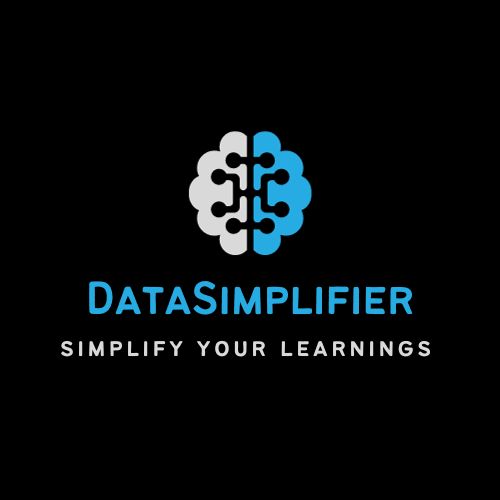Introduction
Blockchain technology is not just a buzzword but a groundbreaking innovation in the management of data and transactions across various industries. Conceived initially as the base for cryptocurrencies like Bitcoin, blockchain has transformed into a versatile technology applied in healthcare, banking, education, and other fields.

Mastering blockchain technology is not optional anymore for Indian students and professionals. With India placing itself among the top ranks as a global tech hub, the demand for blockchain skills is skyrocketing. Whether preparing for interviews, looking for upskilling, or planning career advancements, getting to know about blockchain matters.
This ultimate guide will not only explain blockchain in simple terms but also dive into its real-world applications, benefits, and career opportunities, empowering you to make informed decisions. By the end, you’ll know why blockchain is a must-learn technology for anyone looking to thrive in India’s digital age.
What is Blockchain Technology?
At its core, blockchain is an electronic ledger that records transactions in a safe and decentralized way. Blockchain does not work like a traditional system in which one central authority verifies and keeps the records but instead relies on a distributed network of computers known as nodes to collectively validate and store data.
Features of Blockchain:
- Transparency: Each transaction is logged on a public ledger to ensure accountability.
- Immutable: Once entered, data cannot be altered or deleted; hence it is tamper-proof.
- Decentralization: No single entity controls the blockchain, reducing the risk of corruption or fraud.
- Security: Advanced cryptographic techniques protect data from unauthorized access.
For example, if you send money using blockchain technology, your transaction is verified by the network, eliminating the need for intermediaries like banks.

How Blockchain Works: A Simple Explanation
Imagine a shared notebook where everyone writes down transactions, and once a page is full, it’s sealed with a lock. To add a new page, everyone must agree on its contents. This notebook is distributed to everyone in the network, ensuring no one can tamper with it.
This “notebook” is the blockchain, each “page” is a block, and the “lock” represents cryptographic security. This guarantees trust and transparency without a central authority.
Why is Blockchain Relevant for India?
India’s digital transformation is accelerating with initiatives like Digital India and BharatNet, which aim to connect millions to the internet. Blockchain complements this transformation by addressing key challenges like data security, transparency, and efficiency.
Key Enablers of Blockchain Adoption in India:
- Digital Payments: Blockchain can add further security and scalability to India’s world-class UPI system.
- E-Governance: Services like land registry, voting systems, and tax collection can become more efficient.
- Economic Impact: By reducing fraud and enhancing supply chain efficiency, blockchain can save billions.
Applications of Blockchain Technology in India
1. Finance and Banking
Blockchain is transforming the financial landscape of India through faster, cheaper transactions and reduced fraud.
- Cross-Border Payments: Blockchain eliminates intermediaries, ensuring real-time settlements.
- Trade Finance: Major banks like ICICI and Axis Bank are simplifying processes like Letters of Credit.
2. Healthcare
Blockchain ensures secure sharing of medical records, reducing errors and improving patient outcomes.
- Vaccine Distribution: During COVID-19, blockchain tracked vaccine shipments, ensuring authenticity and timely delivery.
- Data Privacy: Patients can control who accesses their medical history.
3. Education
Indian universities are fighting the menace of fake degrees by issuing blockchain-based certificates.
- Examples: IITs and other premier institutions are adopting this technology to issue digital diplomas.
4. Supply Chain Management
Blockchain ensures end-to-end traceability, reducing inefficiencies and boosting trust.
- Agriculture: Farmers get fair prices through transparent supply chains.
- E-commerce: Platforms like Amazon and Flipkart can authenticate products.
5. Government Initiatives
India is applying blockchain in:
- Land Records: Reducing disputes and fraud in property transactions.
- Voting Systems: Blockchain-based e-voting guarantees transparency and tamper-proof processes.

Advantages of Blockchain Technology
- Improved Security: Blockchain’s cryptographic techniques safeguard data from hacks.
- Operational Cost Efficiency: By removing middlemen, operational costs are drastically reduced.
- Increased Transparency: A single source of truth fosters trust among participants.
- Empowerment: Decentralization puts control back into the hands of users.
Challenges and Roadblocks
While blockchain holds immense potential, its adoption in India faces hurdles:
- Regulatory Uncertainty: Confusion over cryptocurrency policies has slowed blockchain adoption.
- Lack of Awareness: Many professionals view blockchain as limited to cryptocurrencies.
- Infrastructure Gaps: High-speed internet and technical expertise are lacking in some regions.
How to Learn Blockchain Technology
Courses and Certifications
- Beginner Level: Blockchain basics offered by Coursera or Udemy.
- Advanced Programs: IITs and NPTEL.
- Specialized Courses: Blockchain in Finance, Healthcare, and Smart Contracts.
Resources to Look Up
- Books: Mastering Blockchain by Imran Bashir.
- Communities: Join Ethereum India or Hyperledger India groups.
- Hackathons: Participate in events to gain hands-on experience.
Jobs in Blockchain
In-Demand Roles:
- Blockchain Developer: Designing smart contracts and decentralized apps.
- Blockchain Analyst: Evaluating blockchain solutions for businesses.
- Blockchain Architect: Developing frameworks for enterprises.
Companies Hiring Blockchain Experts in India:
- Tech Giants: Infosys, TCS, Wipro.
- Startups: Polygon, InstaDApp, CoinDCX.
- Global Players: IBM, Accenture, Deloitte.
Future of Blockchain in India
India is on the right track, with government projects, corporate adoption, and innovative startups leading the way. Blockchain-based academic certificates, digital identities, and CBDCs suggest that blockchain will soon become part of daily life.

This is the perfect time for students and professionals to dive into blockchain, upskill, and contribute to India’s digital revolution.
Conclusion
Blockchain is no longer just a trend—it’s becoming the backbone of the digital world. From finance and healthcare to education, its applications are boundless, creating immense opportunities for Indian students and professionals.
Now equipped with resources and insights, you can explore blockchain applications, get certified, and embark on a fulfilling career journey.
Call to Action: Join our Telegram channels for more resources, job notifications, and exclusive access to premium blockchain communities. Comment your Telegram username below to get an invite to our premium group—where India’s blockchain pioneers connect and grow together.
Share the post with your friends

1 thought on “What is Blockchain Technology | Here is the Best Explained Solution”